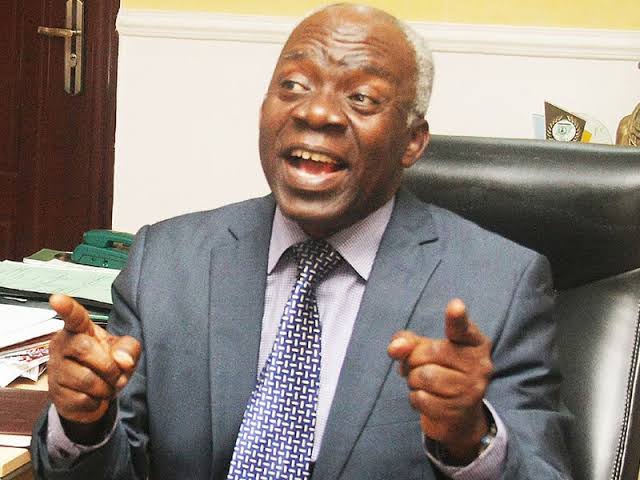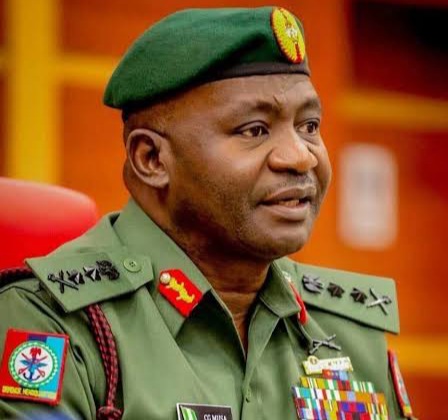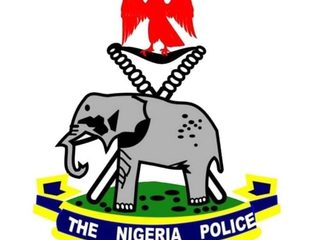
REVEALED; Yar’Adua cancelled refinery sale over questionable circumstances under Obasanjo – Falana
REVEALED; Yar’Adua cancelled refinery sale over questionable circumstances under Obasanjo – Falana
Human rights lawyer and Senior Advocate of Nigeria (SAN), Femi Falana, has weighed in on the federal government’s decision to cancel the Public-Private Partnership (PPP) arrangement for the management of the Port Harcourt, Warri, and Kaduna refineries, initially approved during the administration of former President Olusegun Obasanjo in 2007.
Falana pointed to questionable circumstances surrounding the deal, which he argues lacked transparency and due process.
In response to a statement made by Obasanjo on Thursday regarding how his successor, the late President Umaru Musa Yar’Adua, refunded $750 million to a consortium originally contracted to manage the refineries, Falana sharply criticised the deal’s integrity.
According to the activist, the PPP arrangement was flawed from the outset and was marked by a lack of openness.
Speaking on behalf of the Alliance on Surviving COVID and Beyond (ASCAB), Falana recalled how Obasanjo had allegedly bypassed the National Council on Privatisation (NCP), led at the time by Vice President Atiku Abubakar.
Falana accused Obasanjo of taking unilateral control over the privatisation process, which included the controversial sale and management of several public enterprises, in violation of the Privatisation and Commercialisation Act.
The NCP, a body created to oversee the privatisation of state assets, was sidelined, according to Falana, as Obasanjo pursued the deal without the proper checks and balances that the law mandates.
This, he suggests, contributed to the controversial nature of the refinery PPP deal, which has been a source of public debate for years.
The cancellation of the deal marks another chapter in the ongoing controversy surrounding Nigeria’s privatisation efforts, with many questioning the transparency and accountability of past deals.
He said: “On May 17, 2007, President Obasanjo sold a 51% stake in the Port Harcourt refinery to Bluestar Oil for US$561 million.
“In another transaction that took place on May 28, 2007, President Obasanjo sold 51% shares in Kaduna Refinery to Bluestar Oil for $160 million.
“Bluestar Oil was a consortium of three domestic companies, including Dangote Oil, Zenon Oil and Transcop.
“Before the deal, President Obasanjo had acquired large shares in Transcorp through ‘blind trust.’
“Many interest groups in the country questioned the legal validity and moral propriety of the sales as they were consummated in the last days of the Obasanjo administration.
“The two powerful trade unions in the oil industry —the National Union of Petroleum and Natural Gas Workers (NUPENG) and the Petroleum and Natural Gas Senior Staff Association of Nigeria (PENGASSAN) kicked against the privatisation of the two refineries on grounds of conflict of interest and lack of due process.
“They also alleged that the nation had been shortchanged as the shares acquired in the Port Harcourt refinery for $516 million were worth US$5 billion.
“Convinced that the deals were not in the national interest, both unions proceeded on a 4-day strike that almost paralysed the Nigerian economy in June 2007.
“The strike was called off based on the assurance of the federal government to the effect that the deals would be fully investigated.
“Upon the conclusion of the investigation by the federal government, the purported privatisation of the Port Harcourt and Kaduna refineries was cancelled by President Umaru Yar’adua.
“It is on record that the cancellation of the privatisation was not challenged in any court as it was carried out contrary to the letter and spirit of the Privatisation and Commercialisation Act.”
News
Scores of terrorists neutralised after Major attacks on military base

Scores of terrorists neutralised after Major attacks on military base
Nigerian troops have successfully neutralised several terrorists and thwarted coordinated attacks in Adamawa and Borno States.
The Joint Task Force, Operation Hadin Kai, announced that the successes followed swift and decisive responses by soldiers to attempts by insurgents to overrun military formations in the North-East.
In a statement issued on Friday, Acting Media Information Officer of the Task Force, Lieutenant Solomon Atokolo, confirmed that the operations resulted in heavy casualties for the terrorists.
He explained that the first attack took place in the early hours of January 16, 2026, when insurgents targeted a patrol base at Sabon Gari in Madagali Local Government Area of Adamawa State.
Atokolo stated that troops under Sector 4 of Operation Hadin Kai quickly engaged the attackers and successfully repelled them. He added that reinforcements from Gulak and the Battalion Quick Reaction Force were promptly mobilised to support the operation, ensuring that the assault was decisively crushed.
“The terrorists were successfully repelled without any casualty to our troops or damage to equipment, forcing them to abandon the attack,” the statement said.
He added that security forces later carried out clearance operations in the surrounding area, scanning for improvised explosive devices and booby traps to guarantee the safety of both civilians and personnel.
In a separate incident on the same day, terrorists staged a large-scale, multi-directional attack on Forward Operating Base (FOB) Azir in Borno State.
The attackers attempted to breach the base’s defensive perimeter but were met with fierce resistance from troops. With support from the Air Component and other Nigerian Army aerial platforms, the soldiers unleashed sustained firepower that compelled the insurgents to retreat.
Although rocket-propelled grenade fire from the terrorists damaged some troop-carrying vehicles and partially affected the base’s CCTV control room, Atokolo said troops maintained full control of the situation and prevented any further breach.
The military spokesperson disclosed that several weapons and ammunition were recovered from the fleeing terrorists.
Items seized included a 60mm mortar tube, mortar bombs, locally fabricated explosives, heavy machine gun rounds, and hundreds of rounds of 7.62mm NATO ammunition.
The Joint Task Force commended the professionalism and resilience of the troops, reaffirming its commitment to sustaining operations aimed at restoring lasting peace and security to the North-East region.

Scores of terrorists neutralised after Major attacks on military base
Nigerian troops have successfully neutralised several terrorists and thwarted coordinated attacks in Adamawa and Borno States.
The Joint Task Force, Operation Hadin Kai, announced that the successes followed swift and decisive responses by soldiers to attempts by insurgents to overrun military formations in the North-East.
In a statement issued on Friday, Acting Media Information Officer of the Task Force, Lieutenant Solomon Atokolo, confirmed that the operations resulted in heavy casualties for the terrorists.
He explained that the first attack took place in the early hours of January 16, 2026, when insurgents targeted a patrol base at Sabon Gari in Madagali Local Government Area of Adamawa State.
Atokolo stated that troops under Sector 4 of Operation Hadin Kai quickly engaged the attackers and successfully repelled them. He added that reinforcements from Gulak and the Battalion Quick Reaction Force were promptly mobilised to support the operation, ensuring that the assault was decisively crushed.
“The terrorists were successfully repelled without any casualty to our troops or damage to equipment, forcing them to abandon the attack,” the statement said.
He added that security forces later carried out clearance operations in the surrounding area, scanning for improvised explosive devices and booby traps to guarantee the safety of both civilians and personnel.
In a separate incident on the same day, terrorists staged a large-scale, multi-directional attack on Forward Operating Base (FOB) Azir in Borno State.
The attackers attempted to breach the base’s defensive perimeter but were met with fierce resistance from troops. With support from the Air Component and other Nigerian Army aerial platforms, the soldiers unleashed sustained firepower that compelled the insurgents to retreat.
Although rocket-propelled grenade fire from the terrorists damaged some troop-carrying vehicles and partially affected the base’s CCTV control room, Atokolo said troops maintained full control of the situation and prevented any further breach.
The military spokesperson disclosed that several weapons and ammunition were recovered from the fleeing terrorists.
Items seized included a 60mm mortar tube, mortar bombs, locally fabricated explosives, heavy machine gun rounds, and hundreds of rounds of 7.62mm NATO ammunition.
The Joint Task Force commended the professionalism and resilience of the troops, reaffirming its commitment to sustaining operations aimed at restoring lasting peace and security to the North-East region.
News
Federal Govt warns States against negotiating with Bandits

Federal Govt warns States against negotiating with Bandits
The Minister of Defence, Christopher Musa, has urged state governments across the country to stop engaging in negotiations with bandits, warning that such actions undermine national security efforts.
Musa made the call during an interview with BBC Hausa, where he expressed concern that dialogue with criminal groups weakens ongoing military operations.
According to him, reaching agreements with bandits often proves futile, as they cannot be trusted to honour their commitments.
He argued that many of the criminals lack genuine remorse and are likely to renege on any deals struck with them.
The minister disclosed that the Katsina State Government was cautioned over its recent decision to facilitate the release of 70 suspected bandits from custody.
However, the Katsina government had defended the action, describing the move as essential to consolidating community-driven peace agreements with “repentant bandits” in several local government areas.
“Negotiation with bandits is not a way out, those people are not real, whenever they come for reconciliation, they need something,” Musa spoke in Hausa language.
“What’s happening in Katsina we told them, don’t ever make the mistake of reconciling with those people, they are liars.
“We begged people to stop negotiating with them and the government should stop. It’s not right and they will surely come back again. They don’t fear God.
“We already informed them it damages our work, we asked them to stop, you know it’s democracy now not military rule. But we are in talk with them.”
The defence minister refuted claim that the federal government pays ransom to kidnappers.
“Paying ransom is not good. People should stop paying ransom when they kidnap people. Report should be made and actions will be taken.”
“Federal government doesn’t pay for ransom. It might be other people and they are doing that on their own.”
-
6 years ago
Our situation in Kano terrible – Gov Ganduje cries out
-

 News11 months ago
News11 months agoFG pledges commitment to enhance Police officers Welfare, implement Tinubu’s 8-point agenda for NPF
-

 News11 months ago
News11 months agoBREAKING; NSCDC gets approval to commence 2025 recruitment exercise
-

 News9 months ago
News9 months agoAlleged cocaine deal: Court issues orders in suspended DCP Abba Kyari’s case
-

 News12 months ago
News12 months agoDPO under investigation for allegedly taking teenage girl to his home while in police custody
-

 News12 months ago
News12 months agoJUST IN; Commissioner of Police bows out of Service
-

 News9 months ago
News9 months agoJUST IN; Police Inspector dies watching Arsenal match
-

 News12 months ago
News12 months agoBREAKING; NLC declare nationwide protest


